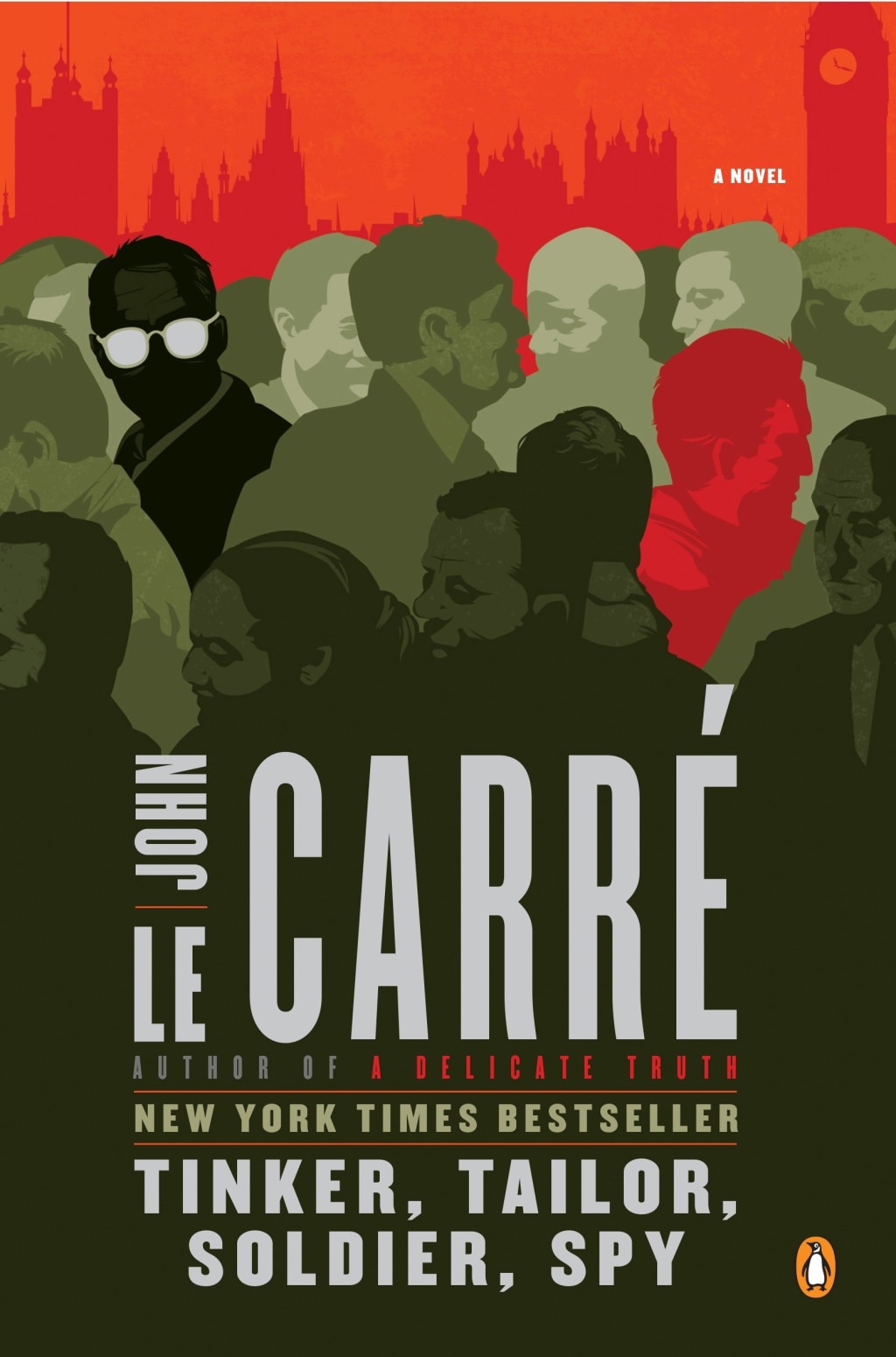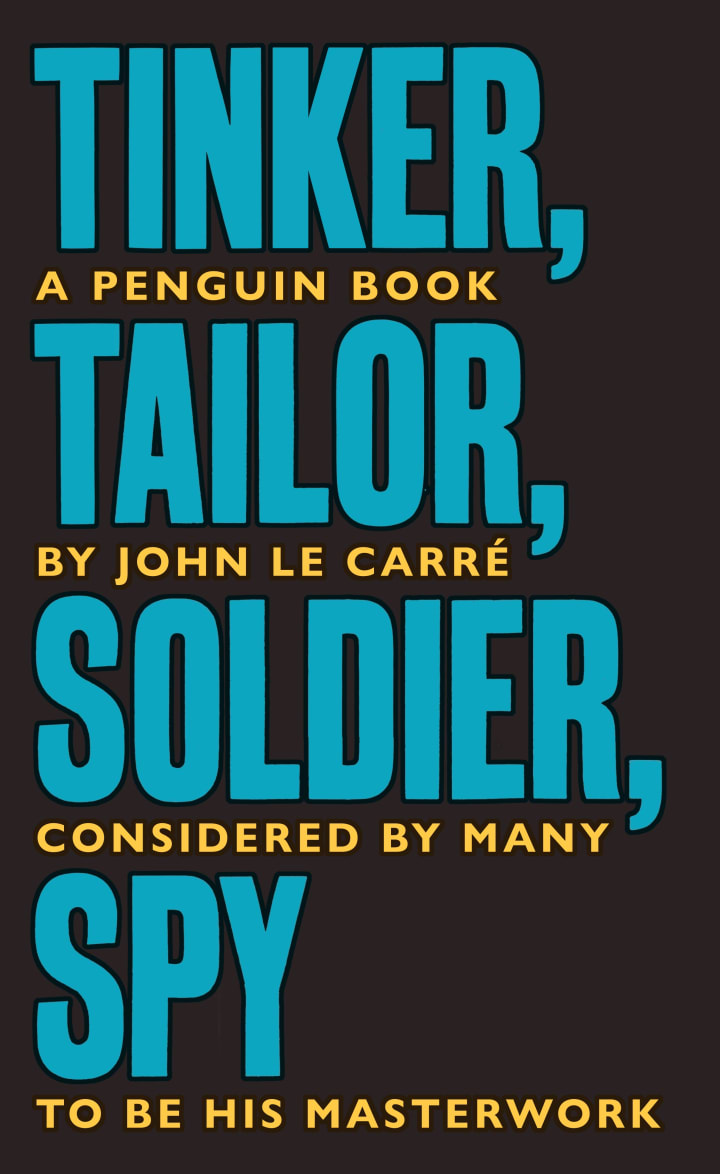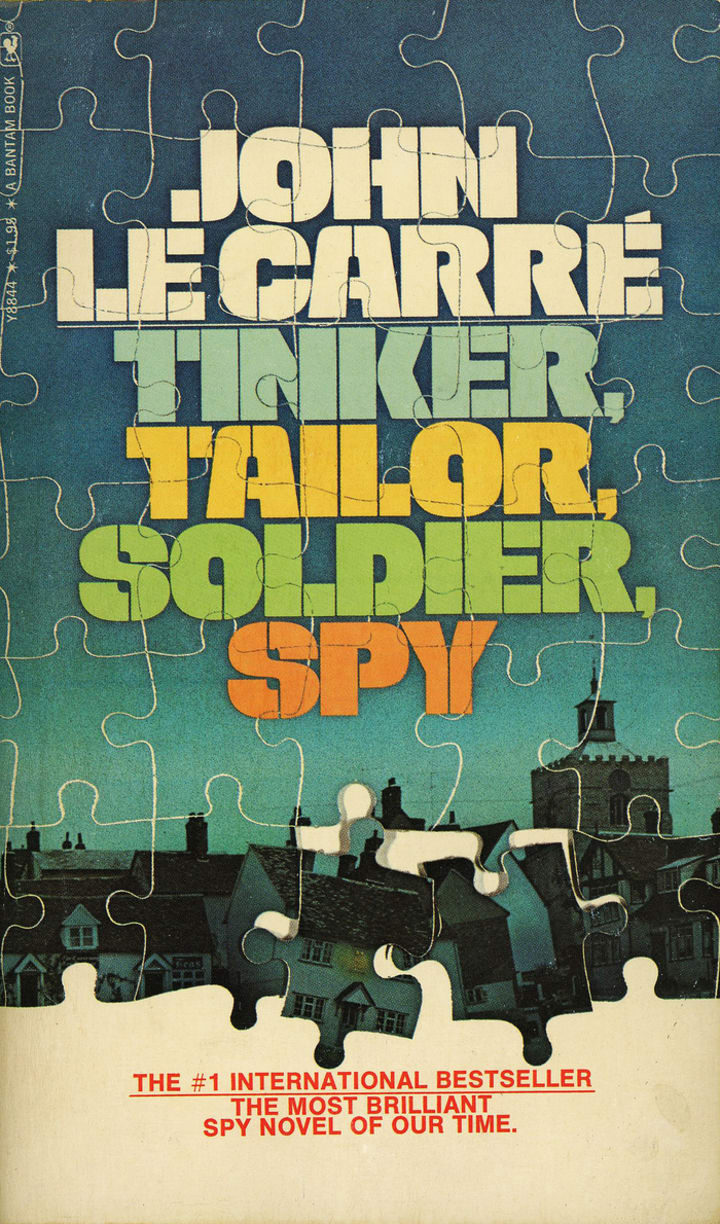"Tinker, Tailor, Soldier, Spy" by John Le Carré
A Reading Experience (Pt.31)

I read this book when I was about fourteen years’ old - it was a year before the film came out and I’m going to be perfectly honest with you that I only read the book because I knew there was going to be a film with a lot of big names. I’d heard of George Smiley before that, being interested in spy fiction - I was incredibly into the James Bond series as my guilty pleasure reading growing up (and I’m re-reading the entire series at the moment, it really brings back some serious memories) and I was also a big fan of things like Poirot and Sherlock Holmes. To be honest, I didn’t think I’d like all the dullness of the Cold War involved in the novel, but I was so definitely wrong because everything about this book is contained within that historical context. It was like releasing a beast into a circle that already had these dark, shady creatures of its own. It made for the perfect atmosphere. This book ended up changing my opinion of spy novels altogether because of the fact it was so intense, it was so suspenseful and it was definitely one of the darkest spy novels I’d ever read. My first reading experience of it, you could say, was completely immersive.
George Smiley is the best character by a flying mile and not only in this book. He is probably in my top fifty favourite literary characters of all time because of the main thing that makes him great: his ability to have patience. Everything with George Smiley is timed almost perfectly and when you get into the gist of how his timing works, you can see that he is basically playing all the characters like a chessboard. It is a brilliant way of doing things because not only does it let us into the character’s goal but it also adds extreme suspense to the novel. The one fault that George Smiley has is the fact that there are so many people with access to him. This works incredibly well in the book because in “Tinker, Tailor, Soldier, Spy”, we see that there is definitely a character who doesn’t quite fit the mark of Smiley’s People. We see an informant within the group and we only see that because of the access this character has to Smiley (I won’t spoil it by saying who it is!). I feel like George Smiley represents the whole of the British Intelligence System in the fact that he waits for the correct moment to do something, he moves people around at his will and he just ‘knows’ everything. You find out that he, out of all the characters, is the most machiavellian of them all.

A key theme that I enjoyed in “Tinker, Tailor, Soldier, Spy” was the intelligence system and its nefarious methods. Not everything in the intelligence system is strictly speaking legal, but Smiley likes to get the job done and to get it done at the right time and in the right way. There are certain points in the book that’ll make you question whether that was something that the British Intelligence would actually do - and that doesn’t matter. George Smiley is supposed to stand out as this manipulative character that is constantly playing the other characters at their own game. All in all, he’s a man with a nefarious streak about him and when needed, he can use it to his advantage and it makes for great suspense and intensity. I believe that this theme is primarily used because it wants not only to make George Smiley stand out as a different kind of spy, but it also wants to show the reader how manipulative the system really is. In the face of adversity, at a point where everyone is constantly running out of time - it takes one man to pull the strings and make the decisions. It definitely impacts the way you read the book because the more you look into it, the more you realise that George Smiley isn’t a very nice character at all. He’s not even an anti-hero. He’s just an manipulative puppeteer of all these characters and yet he is responsible for none of their lives. The plot is constructed brilliantly around him.
This book means so much to me because I’ve read it quite a few times over the years whilst studying characters. My latter reading experiences have been tremendous because I realise more and more that there is definitely an underlying set of power politics at play between the other characters and George Smiley is the one actually controlling them when they don’t realise it. I have also realised that the plot has been constructed through a lot of dramatic irony and that is something that is very difficult to do well. The best thing about the book though will always be the actual storyline itself - there’s an informant in the British Intelligence during the Cold War.

I think far more people should read this book because of the fact it is the basis for a spy novel. It is brilliant, it is intense, it is dark and gritty and it has a hell of a lot of story and atmosphere. People are still reading this book today not only because of the film, but also because of the fact that James Bond may be good, but George Smiley is machiavellian - and that is slightly better. Whenever I re-read this next, I’m going to have a look at how Smiley’s discourse makes him appear to the other characters.
About the Creator
Annie Kapur
200K+ Reads on Vocal.
English Lecturer
🎓Literature & Writing (B.A)
🎓Film & Writing (M.A)
🎓Secondary English Education (PgDipEd) (QTS)
📍Birmingham, UK






Comments
There are no comments for this story
Be the first to respond and start the conversation.